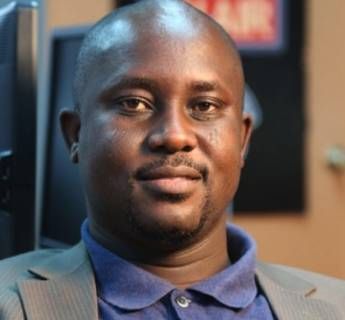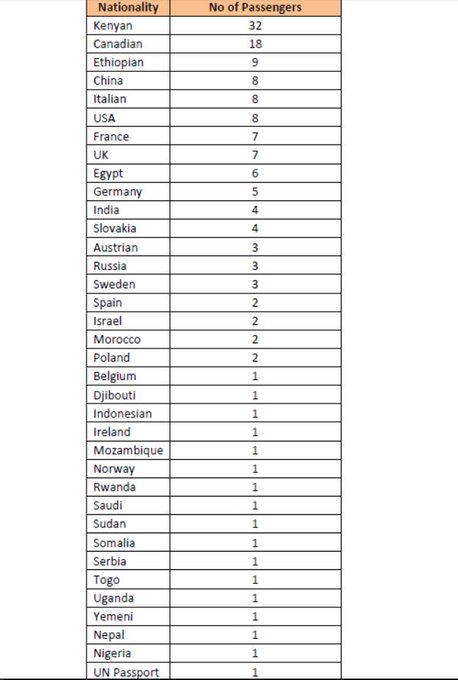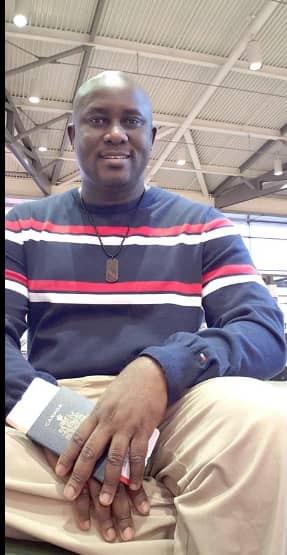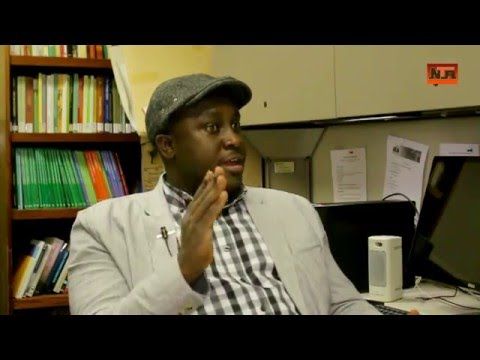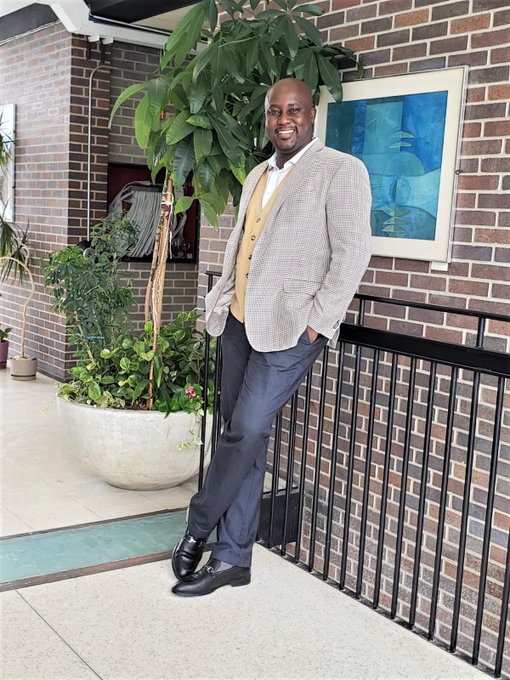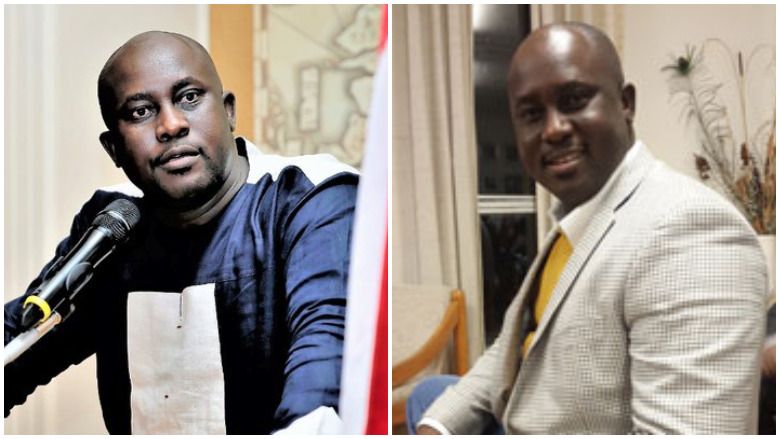
Twitter profile picture/Carleton University Pius Adesanmi
Pius Adesanmi, a well-known Nigerian-born professor with Carleton University in Canada who is described as a brilliant scholar, author, teacher, and intellectual, was named as one of the 157 Ethiopian Airlines crash victims. On Twitter, he described himself simply: “Teacher.”
Others called him “simply irreplaceable.”
The crash remains under investigation. You can see a round-up of some of the other plane crash victims here.
Tributes flooded into Twitter for Pius Adesanmi. “A brilliant scholar, intelligent and yet witty with his words. A man I respect with his literary prowess. May the heaven’s have mercy on your soul and shortcomings. Adieu #PiusAdesanmi,” wrote one man. Others expressed great heartbreak, with one man writing, “I’ll tell myself prof is gone then after a few minutes I’m so sure it’s a lie only to confronted with reality.”
An Italian aid organization co-founder, the family members of a Slovakian MP, a British woman working with Kenyan fishermen, and a prominent Kenyan soccer official were among the other victims named in the March 10, 2019 tragedy.
People from 35 countries were on board the doomed flight, and eight Americans were listed among the dead. The plane is the same Boeing model as a Lion Air flight that also crashed shortly after takeoff last year, causing mass casualties.
Here’s what’s known about Professor Pius Adesanmi:
1. Pius Adesanmi Was Remembered as a ‘Brilliant Gentleman’ & ‘Great Son of Africa’
Sahara Reporters described Pius Adesanmi as a “popular Nigerian professor and columnist based in Canada.” The site reported that he was a Professor of English at Carleton University. He was called a “prodigiously brilliant gentleman” and “a great son of Africa” in one tribute.
“The world has lost a fine intellectual, one of a rare breed of thinkers and good governance advocate. It’s confirmed, people, we lost Professor Pius Adesanmi in that Ethiopian Airlines crash. ?” wrote one woman in tribute.
A journalist wrote on Twitter, “I just got information that Professor Pius Adesanmi, a Nigerian professor with Carlton University in Canada is among those that died this morning on the ill fated Ethiopia airline. On his way to attend the AU ECOSOCC committee meeting in Nairobi. RIP.”
2. Adesanmi Directed the University’s African Studies Program & Was a ‘Towering Figure in Post-Colonial Scholarship’
Adesanmi was described as “an English professor and director of the university’s Institute of African Studies,” according to Global News.ca.
“Pius was a towering figure in African and post-colonial scholarship and his sudden loss is a tragedy,” Benoit-Antoine Bacon, president and vice-chancellor of Carleton University, said in a release. “Our thoughts and prayers are with his family and all those who knew and loved him, and with everyone who suffered loss in the tragic crash in Ethiopia.”
Pauline Rankin, dean of the university’s faculty of arts and social sciences, told Global News.ca that Adesanmi made “immeasurable contributions” to Carleton University. The university is located in Ottawa.
“He worked tirelessly to build the Institute of African Studies, to share his boundless passion for African literature and to connect with and support students. He was a scholar and teacher of the highest calibre who leaves a deep imprint on Carleton,” she said, according to the Canadian news site.
3. Tributes Flooded in for Pius Adesanmi
In post after post, the death of Pius Adesanmi was described as a great loss to society. “The whole of Africa and Canada is mourning the loss of a great man. Prof Pius Adesanmi is what many of us aspire to be like: honest, straight forward, erudite and convivial. This is a sad void that may never be perfectly filled,” wrote one person on Twitter.
Wrote another: “Prof Pius Adesanmi was the kind of scholar I aspire to be. He is not just an ordinary critic, he ensures that transformational principles are to be abided with. He is a “doer” of what he preaches. We have lost a gem… Rip Pius.”
One woman wrote on Twitter: “Rest in peace scholar per excellence. Wish you could just see what a tremendous impact your life, though short lived, had on Nigerians and the rest of the world. #PiusAdesanmi #SimplyIrreplaceable.”
4. Adesanmi Wrote a Book Manuscript & Won a Penguin Prize
Adesanmi’s Carleton University page reads, “The Institute of African Studies warmly congratulates Professor Pius Adesanmi for winning the inaugural Penguin Prize for African writing in the non-fiction category!”
“Professor Pius Adesanmi of the Department of English Language and Literature and the Institute of African Studies at Carleton University was in Johannesburg at the Mail & Guardian‘s Literary Festival on September 4th where the prize was announced. His winning book manuscript, You’re Not a Country, Africa will be published by Penguin Books.”
You can see a list of his publications, awards, and research interests here. His last tweet came on March 9, 2019, when he wrote, “Folks, please, remember: ‘I cast my vote…’ Any ‘I casted my vote’ I see on my TL will be considered election violence. I reserve the right to defend myself.”
5. Adesanmi Wrote That He Was Writing About the Social Media Revolution in Africa & the Post-Colonial World
Adesanmi’s faculty page says that he received a “B.A. University of Ilorin, Nigeria, 1992 M.A. French, University of Ibadan, Nigeria, 1998 Ph.D. French Studies, University of British Columbia, 2002.”
He explained, “I have a very eclectic research and writing scope, ranging from recent trends in theoretical approaches to African and postcolonial literatures to new political and cultural life-worlds in Africa and the Black Diaspora. My scholarship overlaps with an active career as an African public intellectual interested in a broad range of issues such as the role of culture in shaping citizenship, subjectivity, human rights, identity, and the environment in ex-colonial societies affected globalization and fragile modern statehood.”
His research changed over the years.
“Lately, I’ve been reflecting, studying, and writing about the social media revolution in Africa and the postcolonial world. I’ve been exploring how social media affects the materiality of literature and culture, how it affects our understanding of the (literary) text, and inflects old categories of postcolonial knowledge and cultures,” he wrote. “With the blogosphere now a universe of interactions, allowing postcolonial literati and culturati to produce new forms of texts and meaning irrespective of location, when/where is home? When/where is diaspora? My forthcoming book in 2014, Africa’s Many Lovers, is a collection of some fifteen keynote lectures that I have delivered in recent years, exploring these and many other issues.”

